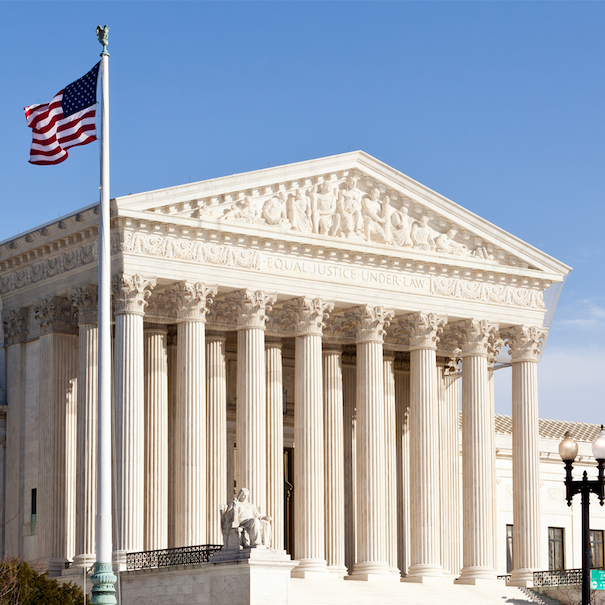NEW UNITED STATES SUPREME COURT RULE PROPERLY RECOGNIZES TRIBAL GOVERNMENTS

In December 2022, the United States Supreme Court adopted changes to its rules. The Native American Rights Fund (NARF) is happy to report that in those changes is a big win for Indian Country, one for which NARF actively advocated on behalf of tribal nations. Specifically, in the 2023 rules, tribal governments will be allowed to file longer amicus briefs, in recognition of their status as governmental entities. This change comes after NARF submitted comments to the Court urging that tribal governments be treated equally to federal, state, and local governments.
In 2019, the Court adopted rules that reduced the length allowed for many amicus briefs filed with the Court. However, briefs filed by federal, state, and local governments were permitted a much higher word count. Notably, tribal governments were not included in the list of governmental entities exempted from the restrictions. Therefore, during the next revision process (held in 2022), NARF submitted comments addressing this disparity.
NARF’s comments to the Court detailed why the change was right and needed. On a basic level, including tribes in the list of governmental entities is consistent with how other branches of the federal government treat tribes. However, it also addresses several unique issues faced by tribal interests in the Court. For example,
- The higher word count for governments recognizes their unique interests in participating as amici curiae out of respect for their inherent sovereignty and/or their exercise of governmental authority. Like other governments, tribes have an interest in advocating for their powers and advancing the unique interests of themselves and their members.
- Cases related to tribes’ authority, treaty rights, and resources frequently do not include tribes as parties. In those cases, tribes participate as amici, and it is critical that tribal perspectives be fully heard on those issues. The United States does not always adequately represent tribal interests in a case. In fact, the positions of the United States and tribes are not always aligned.
- Similarly, in the context of Federal Indian Law, cases often address foundational constitutional law principles. Facilitating tribal participation allows tribes to provide important information and context to the Court.
NARF appreciates the opportunity to comment on the Court’s proposed rule changes and commends the Court on making this important change to properly recognize tribal sovereignty.